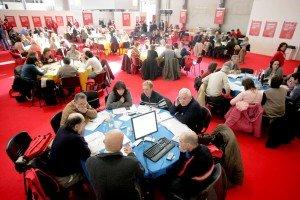


Diventa free member
Vuoi leggere questo articolo e le altre notizie e approfondimenti su Ninja? Allora registrati e diventa un membro free. Riceverai Breaking News, Marketing Insight, Podcast, Tips&Tricks e tanto altro. Che aspetti? Tieniti aggiornato con Ninja.
Diventa free member
Vuoi leggere questo articolo, le altre notizie e approfondimenti su Ninja? Allora lascia semplicemente nome e mail e diventa un membro free. Riceverai Breaking News, Marketing Insight, Podcast, Tips&Tricks e tanto altro. Che aspetti? Tieniti aggiornato con Ninja.

The McLeay initiative is part of the Community Building Partnership, funded by the New South Wales government with $35mln Australian dollars (about 20mln euros). Under the programme, groups of citizens can submit projects and ask for funds to support infrastructure and employment at a local level. Parliamentarians select the best projects and allocate funds, which is where McLeay’s idea comes in, claiming on his website: ““It is your money. Tell me how you think it should be spent”.
The Heathcote parliamentarian can’t decide how to allocate funds. Nevertheless, he can select public works to promote within the Parliament: those considered the most relevant by his voters. Hence, in the New South Wales town a strange countdown has begun: 22 days are left for citizens to vote on McLeay's website, by expressing up to five votes for the 46 public works projects, all suggested by local groups.
The Australian case is not the first experiment in e-participatory budgeting. A precedent? Belo Horizonte, where in 2008 citizens were given the opportunity to vote online for one public work out of five to be carried out. The orçamento participativo initiative is part of the process to involve local communities in public investments started by Belo Horizonte in 1993, four years after Porto Alegre’s first participatory budgeting programme. Since then, every two years citizens vote for a public work to do be done in the city, being aware of the costs.
e-Participatory budgeting's frontiers are yet to be explored. And who knows what it would happen if people, rather than complaining about public administration’s waste, could decide through a mouse-click the public works to be done. Maybe they would vote for the construction of high-speed trains, for a bridge over the sea or for new schools. What is certain is that they would be free to choose what to do with their taxes, and be involved in successful resource allocation. But they would also be responsible for any waste.